Dear reader,
Last week, while visiting Massachusetts, I took my mother on a walk around the perimeter of an empty baseball field. On our second loop, we saw a hawk circling above one of the stadium light towers. We looked upwards in unison to find, resting there, fifty feet above the ground, the largest nest I’d ever seen.
Built from small branches, the nest was at least three feet in diameter, and once noticed it became impossible to ignore. The nest was endearingly out of place, but also ingeniously in the right place: Nobody was going to climb that tower. Plus, the hawk had claimed a prime position to view Little Leaguer’s drink their electrolytes and be generally merry little creatures.
We watched the hawk do its thing for a while. Attuned to the clamorous calls of the beaks within the nest, the hawk gathered sustenance to nurture its eyas, regurgitating the requisite squirrels and bugs, before taking to the skies once more. We could hear them, too, but not see them. So, after a generous pause to ponder the fledgling lives above, we kept walking, returning our gaze to the track. Suddenly, a dragonfly buzzed into our airspace, encircling us with its erratic and unpredictable flight pattern.
“Whenever I see a dragonfly, I like to imagine it is Grandma visiting us,” I said. “Don’t you think a dragonfly is what she’d be?”
“No,” replied my mother.
I wasn’t surprised by her bluntness, but her answer confused me. I thought my grandmother had been a collector of dragonflies. I could picture a dragonfly-embossed soap on the edge of the sink in her bathroom, and a hand painted tile featuring a dragonfly nailed to the wall somewhere at the lake house, or maybe it was a dragonfly rock in the garden, under my grandfather’s tomatoes. My mother’s indifference made me wonder: Had I made it all up?
“What do you think your spirit animal is?” I asked.
My mother stopped walking, so I stopped too. With a furrowed brow, she turned to me and bluntly said, “What?” This was her way of saying, Why are you asking me these weird questions?
“You know, like, if you were an animal, or could embody the characteristics of a certain animal, what would you pick? Is there an animal you’ve always felt connected to?”
“I’m not an animal,” she said, “I’m a human. Don’t be ridiculous.”
Over the last four years, I’ve watched my mother’s interests and disposition change dramatically, due in part to the alchemy of aging, but more so as a result of dementia. She gets transfixed by the most ordinary and mundane things, like airplanes passing in the sky, and big trucks.
We hardly get anywhere when we go for walks because she insists on picking up anything shiny along our path, be it coins, bottlecaps, or foil wrappers. My mother’s fascination with discarded objects became all the more clear when I recently discovered small, rusted pieces of razor-sharp metal fragments in the pockets of nearly every coat and pair of pants she owns.
“She’s collecting trash!” I said to my brother on the phone. “Sidewalk shrapnel!”
He paused and then let out a sigh, “There’s a whole box full under her bed.”
I hope that this growing childlike wonder will eventually carry her into the realm of animism and magic where I now live. I imagine us lying side by side in a verdant alpine meadow, talking to the trees and listening for our ancestors, pondering the ineffable. I want us to dream together as mother and daughter, at least once. For now, my mother worships the man-made, as it is easier for her to grasp. Who am I to say that’s not something?
I did not grow up in a spiritual home. Besides birthdays, we didn’t celebrate, ritualize, or worship anything. We didn’t make-believe. My mother barely kept to the traditions she inherited. Occasionally, she’d carry out the bankrupt charade of Thanksgiving, Christmas, or Easter. We’d have decorated trees or chocolate bunnies, but not because these objects brought her joy, only because my mother felt external pressure to do things by the book as a single parent, and guilt when she didn’t.
I was happy for the chance to talk with my favorite uncle on Thanksgiving, and for the gifts of a Barbie camper van or a Buffy the Vampire Slayer calendar that “Santa” brought me. But even then, I recognized how little these traditions meant to me, and even less the adults rehearsing them.
When I left home at seventeen, I longed to create new traditions but I didn’t know how to make them without feeling like a spiritual phony. I also didn’t want to build them on my own. I wanted to share them, but I lived alone, or coupled off with a partner or roommate, in cities where estrangement from our neighbors was the norm.
I knew people who were good at building community, people who were involved. I had friends who organized block parties and took pleasure in knowing the people in their buildings by name. I did not have these skills, nor the courage to bridge the gap between me and my desire for connection. I was not ready to start something of my own, and the isolated and socially sanctioned routines of work, school, and partnership were convenient excuses to opt out.
In my twenties, keeping traditions often meant unenthusiastically piggy-backing the family celebrations of my then-boyfriend(s). For years, I begged each of my lovers to do something different for Christmas. “Just this once, can we defy expectations!?” I’d plead, only to be met with the same shrug of resignation. Sometimes I’d paddle my own canoe, but without any real planning or intention beyond simply flouting conventions, I’d find myself up Shit’s Creek more often than not.
One Thanksgiving I rented a house upstate with two friends to eat pasta and a bag of mushrooms, and play guitar. I loved every second of it, but I knew our escape was a rogue exception and not a new rule after how much grief their parents gave them for running away with me. Another time I maxed out my credit card at a bookstore on Christmas Eve, cooked a whole chicken, and drew the curtains of my rat-infested Bushwick apartment until the holiday passed. I love spending money on books, but my pleasant solitude transitioned to loneliness, knowing everyone else was together.
Rituals feel different on the ranch. My landmates and I are creating new traditions by allowing our celebrations to define themselves through communal consensus, but also in harmony with what the land desires. We’re cultivating novel ways of relating to one another, and to our home — ways that haven’t been modeled for us, but one’s that we believe in, by dint of creating them ourselves, from scratch.
Over the winter, we discussed seasonality as a simple yet obvious barometer for our capacity — as a collective and as individuals — in relation to one another and the land. Orienting our aspirations around the seasons has helped us to remain aligned with the truth of ever-present change. We don’t really have a choice. As humans, and as a community, the land tells us what to do. What does it look like to listen and harmonize ourselves to its needs, rather than ignoring it? That’s what we’re figuring out.
As a community, we have frequent parties and gatherings. As individuals, we set intentions all the time. But how often do we come together and voice our intentions to those we see and care for most, so that we might carry each other’s dreams while gently holding each other accountable? How often do we sit in a circle to hear the soft echo of our collective consciousness?
In the middle of June, a handful of us spent an evening drafting an invite to our first intentional summer solstice celebration. It was awkward. We decided against having alcohol present (being a first), and we were painfully self-aware that making a request like that, in the context of never having made one before, made the whole thing feel very serious. How could we convey that this was no ordinary Thursday potluck without our friends thinking that we had completely lost it and become culty rulemakers? We wanted everyone to show up as they are, just without a Pacifico in hand. It turns out that feeling like a phony is inevitable when you start a new ritual or tradition, whether you’re alone or not. We asked our friends for grace, and a good sense of humor. We leaned into it.
On the eve of the solstice, Brian made a fire on the hill in a crescent pit that took its shape with stones from the creekbed. Close by, our neighbors spread blankets and sheepskins across the grass. Lucia made an altar with feverfew and snapdragon, with candles and rose petals. Shell and Elena gathered flowers from the field into a wheelbarrow and used them to decorate an arched entry portal. Having decided that I will henceforth be the documentarian of our shared life, I took pictures of everything.
At sunset, with our bellies full of Marsha’s bean stew, the moon rose above the ridgeline and we soberly gathered to sit in a quiet circle around the flames. To begin, I read a passage from Martin Shaw’s Courting the Wild Twin. My hand shook while I held a candle to the pages of the book; I was so nervous. It felt ostentatious to declare myself a leader of something in front of my friends. I worried they were asking themselves, Who does she think she is? I didn’t let it stop me.
I explained the framework of the container, discouraging crosstalk or grief-sharing, and then invited each of us to affirm our intentions before the fire while bathing in the full Cancer moon. Lucia and I agreed that using an object to denote whose turn it was to speak would be helpful. Earlier in the day, we had combed the shelves of our library and settled on an egg-shaped rock. Cupped in my hands, its form and weight ached to be cradled. “Feel this,” I said as I passed it to her. She nodded.
Under a blanket of stars, we passed the egg around. One by one, we named a desire. The prompt was both simple and complex: As we imagine the season ahead, what latent dreams do you intend to feed? What flame is alive inside of you? We are in a barren time of fugitive hope. In an empty womb, what takes root?
One friend affirmed a commitment to call her mother more often. Another talked about her desire to chisel off the crusty bits of her heart so that she might feel more sexy, more joy. Another friend named his desire with a question: Who am I without any expectations? Who am I if I believe I am already enough?
The rock made two full rotations around the fire. Our reflections illuminated the shared truth that we all aspire to dismantle the competitive crunch of late-stage capitalism, and to do so together. Themes of prioritizing the process of friendship and community over outcomes, projects, and doing were abundant. Slowing down. Being present. Having already arrived.
At the end of the ceremony, Lucia reminded us of our privileged position during a time of impoverished global realities. The world is often sad, but somehow, we have a unique measure of agency to shape our world. We affirmed our commitment to do so by listening, and by grounding. Marsha sealed the container with a poem.
After the ceremony, the land told Scott that the end of June is too late to build a bonfire in the hills of Golden California (even with Brian, our resident wildland firefighter, on standby). Scott was listening to his frequency, so we listened to him. It’s quite possible a celebration like this won’t happen at the ranch again, at least not in June. We may do something totally different to honor the next solstice. Which is perfectly okay.
I am learning that the work of building tradition is less about What or How, and more about the Why of things. We are creating the blueprint for whatever traditions take shape and stay with us, and the only prerequisite is vulnerability, connection. It may not always be evoked through the same container — we’re still experimenting with what format works for which function and season — but we know that sharing these inner spells through the collective magnifies them.
Our work here is belief; belief in the process rather than the outcome. Without belief, there is no love. And what is love but the transmutation of fear and doubt into faithful gesture? What are we doing, if not dreaming together? How can we have hope if we are not dreaming together? What we create together is fecund.
Love, Anna
Five Things:
This letter would not be what it is without the conversations I had with Marsha, Lucia, and Ryan. Many of the ideas and terms used were put in my head by them — I am merely a vessel.
Find our friend Shell’s hand-magic here: www.createsharerepeat.com
I have joined the new writing group by
, LANDSCAPES and I’m hooked. I wake up excited to go. Groups are saving my life.If you’ve made it this far, get 25% off prints and posters on my website with the code: FECUND25.
Thank you for being here.





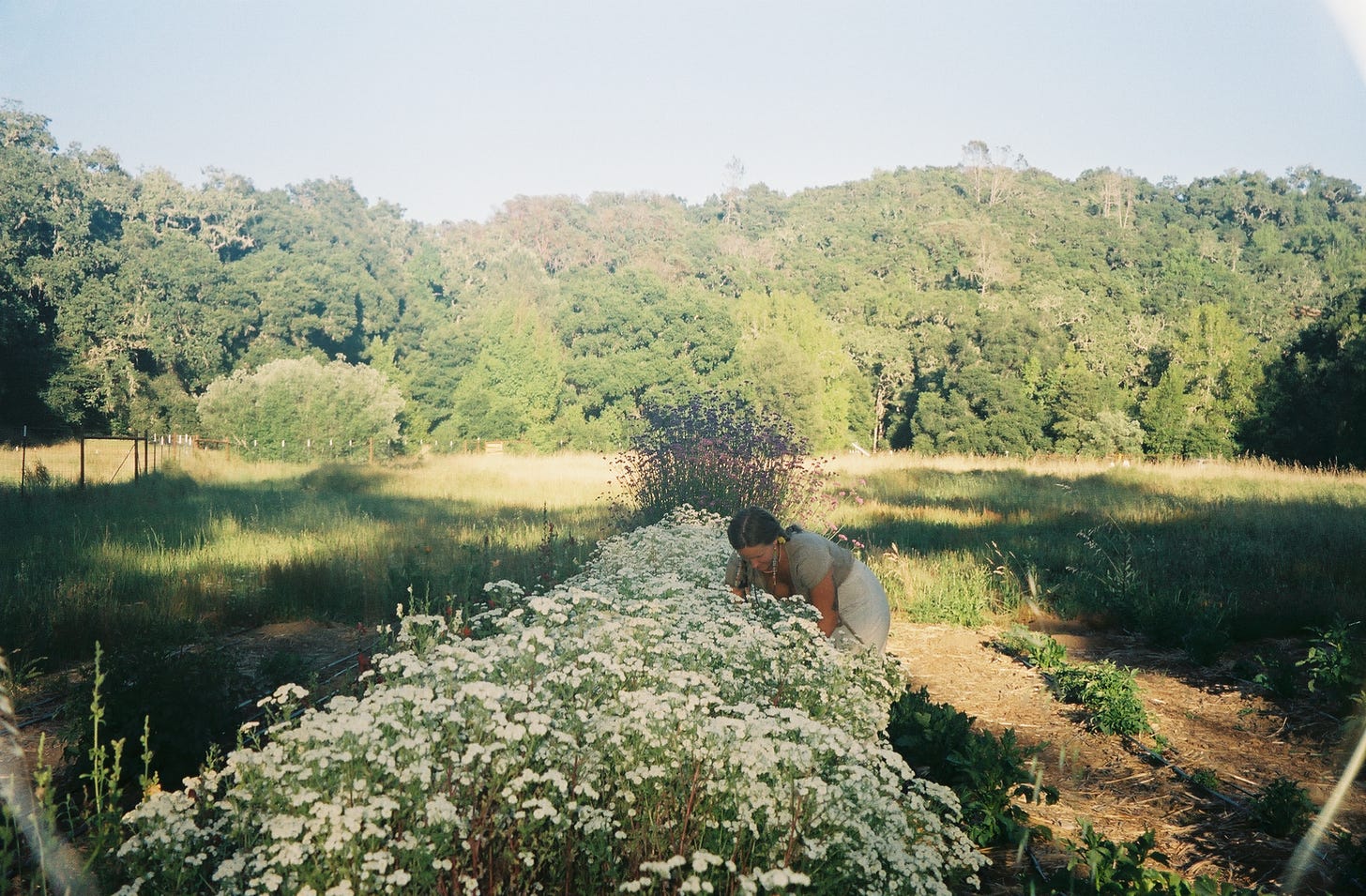
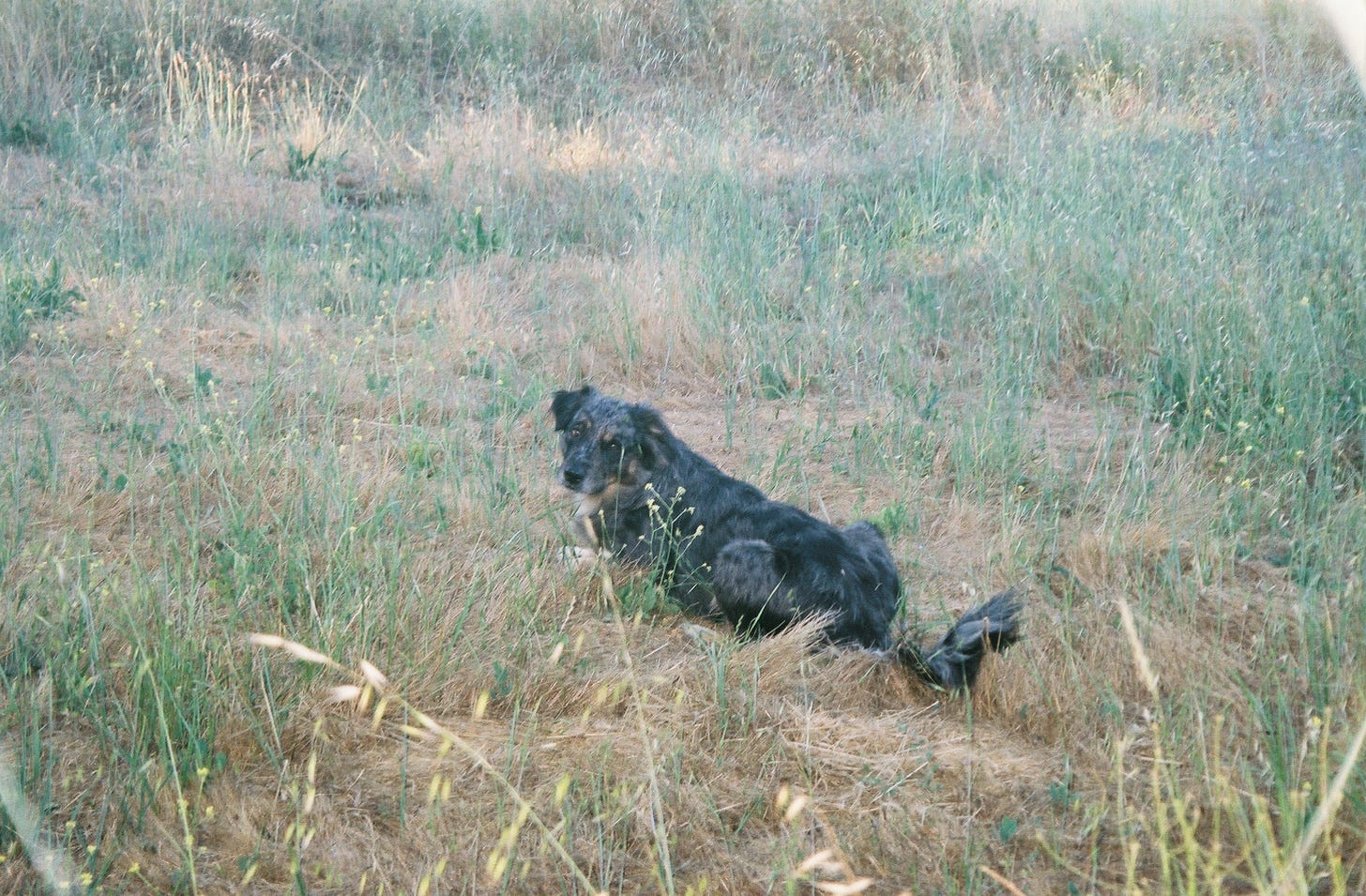

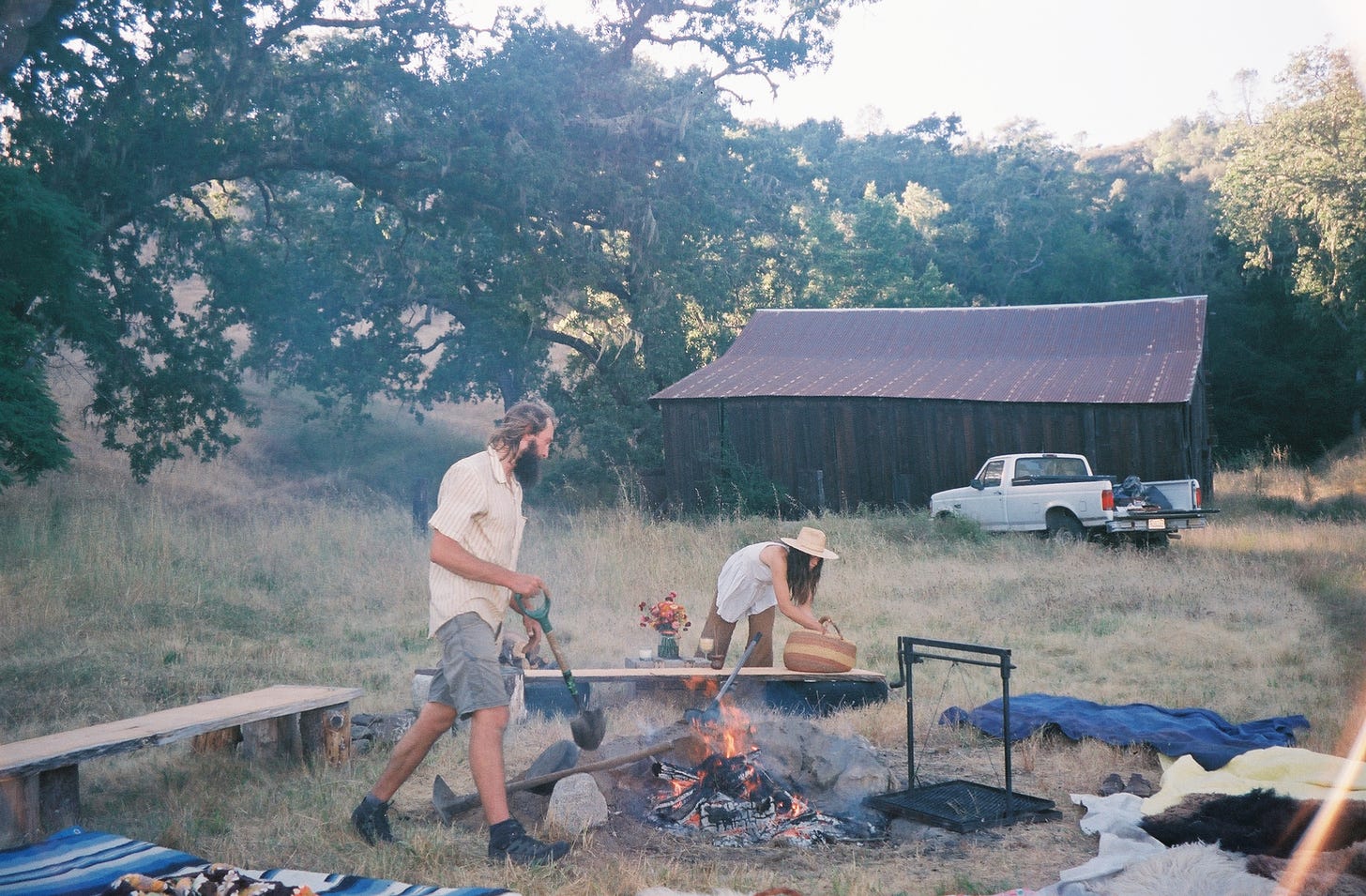
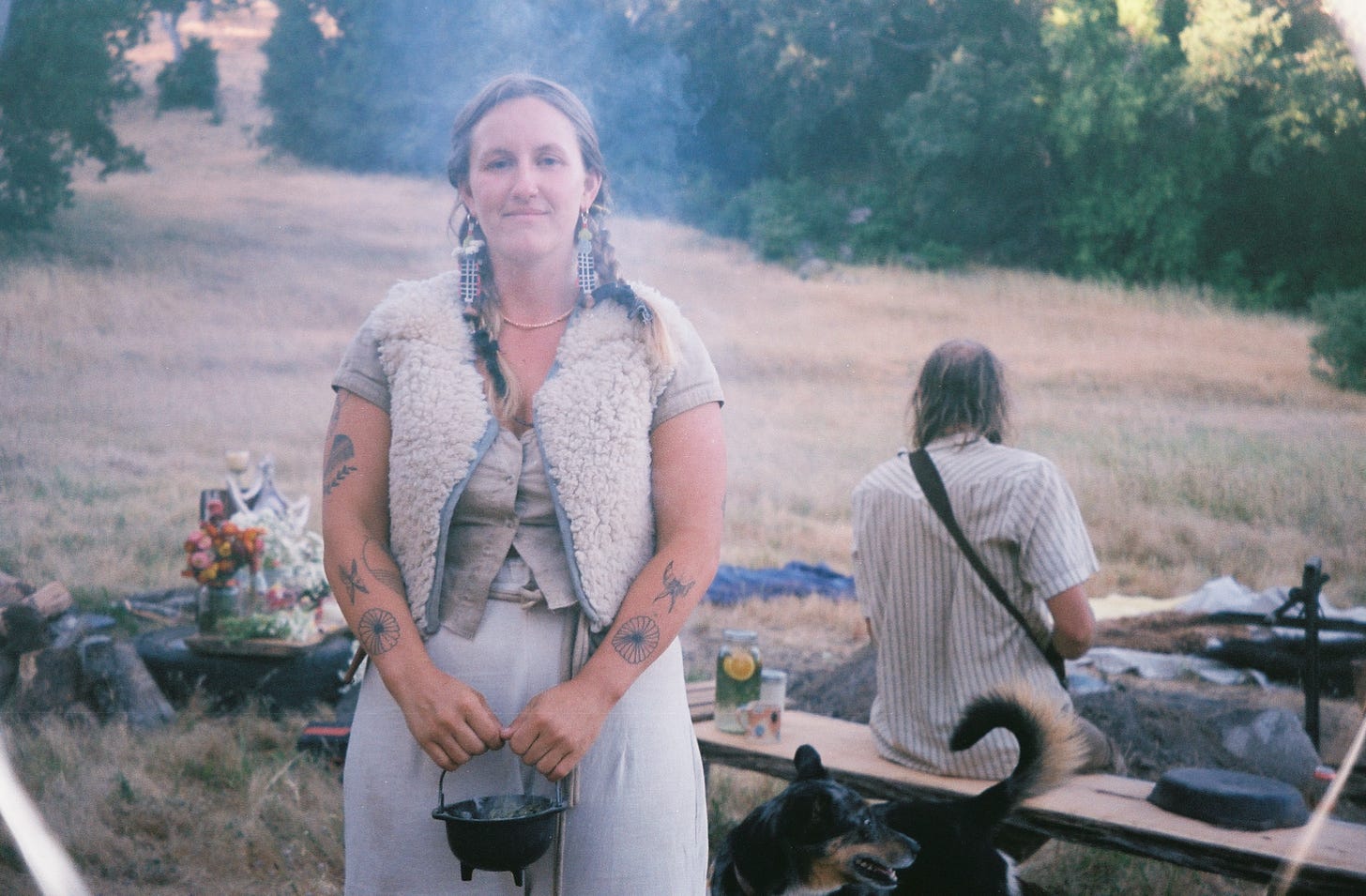


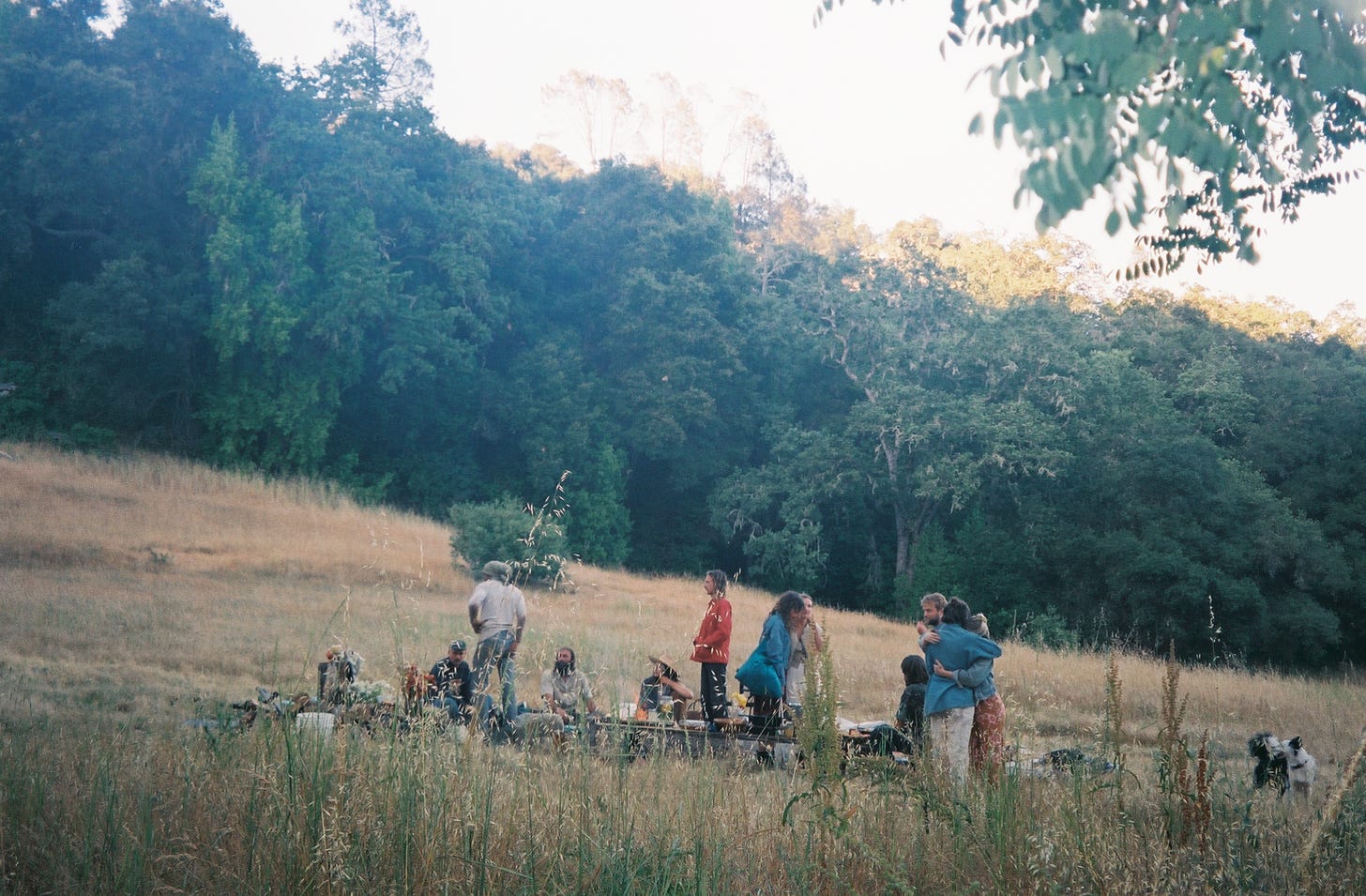
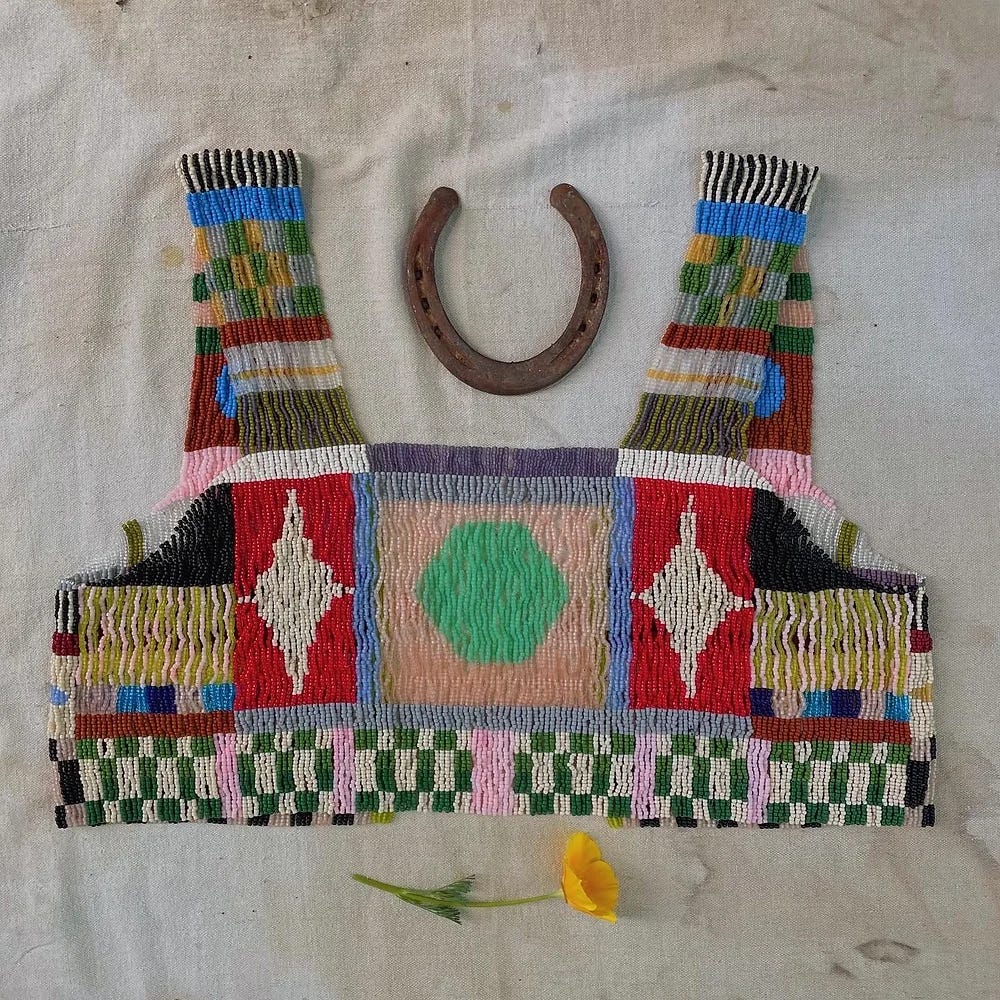
This is so exquisite and mirrors my fears and desires to create new traditions with existing and new friends. Creating community. Legacy. Space for sharing and vulnerability. Feeling inept and unqualified to initiate, but going to anyway. Thank you ✨
I recently got a tattoo of a heart on fire in the center of my chest. It serves as a reminder of that flame that lives inside of me, the one that makes me feel so deeply, the one that pushes me to action. In the past I’ve muted that intensity, thinking it leads only to destruction and isolation, but it is the flame that makes me feel most alive. The simple questions of “What flame is alive inside of you?….In a barren womb, what takes root?” were a much needed reminder that the flame itself is a gift. The flame itself is intuition- guiding me to my most full life. What sets my heart on fire? This was beautiful, Anna. Thank you as always.